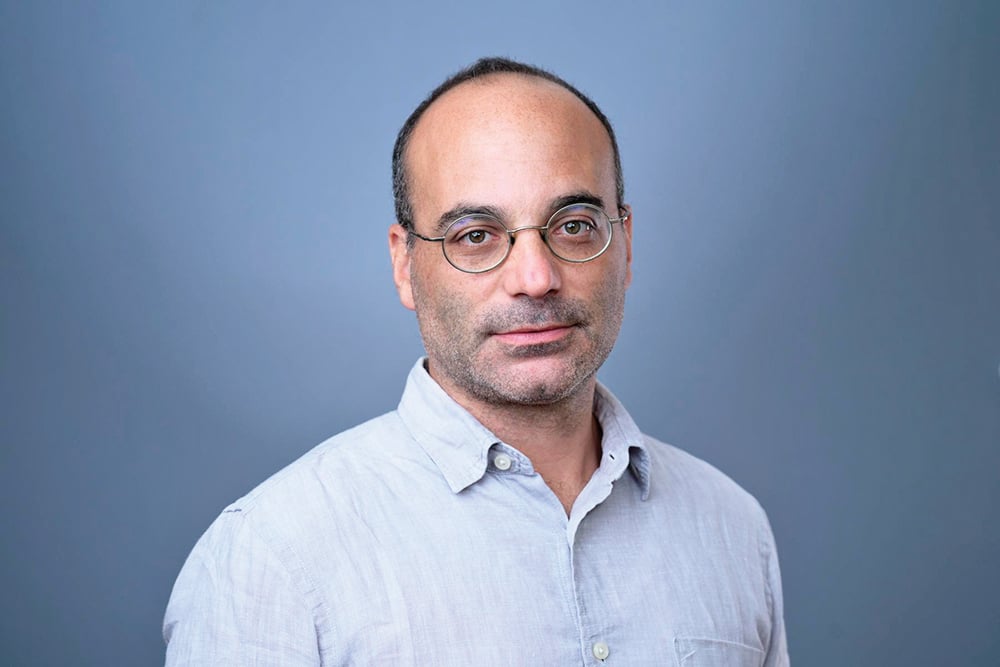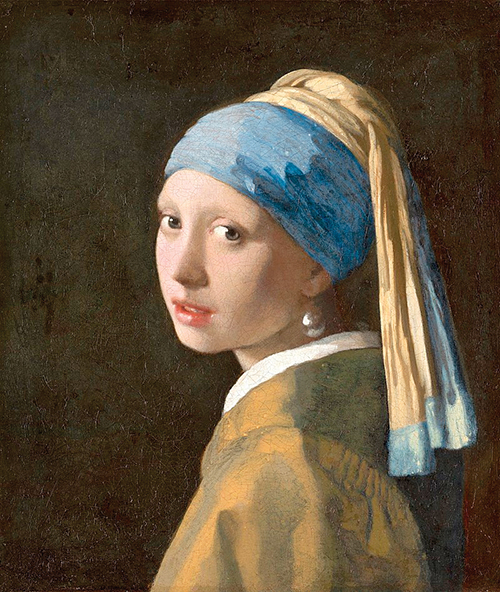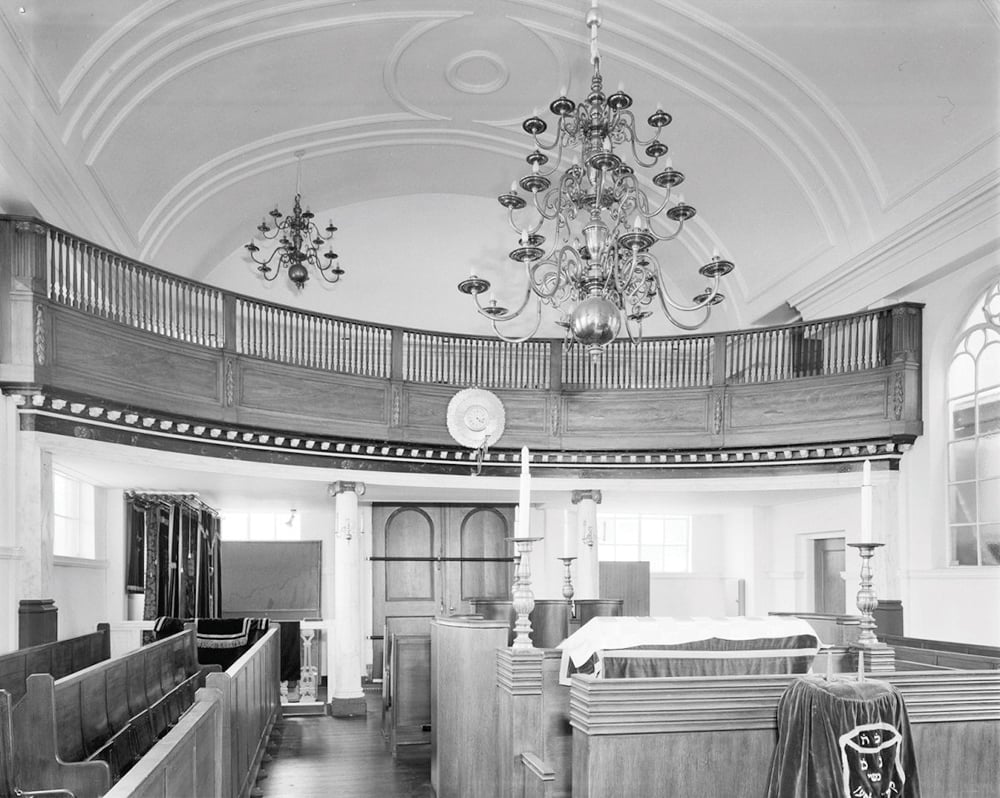
This July, the recently established Abarbanel Institute will be offering its inaugural summer seminar for high school students: “Judaism and the Challenge of Modernity.” Open to rising 10th through 12th graders, the program will take a select group of intellectually ambitious teens to the Netherlands for three weeks of intensive study focused on the art, science, philosophy and politics that helped shape the modern world. Building on the success of such programs as the Bronfman Fellowship and the Tikvah Scholars Program, the Abarbanel Institute’s new summer seminar seeks to offer academically inclined Jewish high school students a compelling European experience suitable for those who are shomer Shabbat and shomer kashrut.
The Abarbanel Institute’s founder, Dr. Aaron Tugendhaft, first came up with the idea of a study program for Jewish teens while teaching at the Ramaz Upper School. (He is currently a professor at the University of Texas at Austin.) Several students mentioned wanting to spend time in Europe over the summer, and college guidance liked the idea of an academically rigorous program that kids who are shomer mitzvot could attend.
Tugendhaft ultimately chose the Dutch university town of Leiden as base for the inaugural summer seminar. Like Amsterdam, Leiden is filled with canals and architecture that can transport you back to the 17th century—but without the tourists and security concerns that plague its larger neighbor. Having lived in Leiden himself for almost two years, Tugendhaft considers it an ideal location for a study program. “It’s really charming and has great used bookstores,” he said. And Leiden is also well connected by train to the other cities that students will visit. For getting around town, though, the program will provide everyone with bicycles for the ultimate Dutch experience.

The academic portion of the program will be co-taught by Tugendhaft and Dr. Jon Jucovy. “I’ll mainly be introducing students to philosophical texts,” Tugendhaft said, “while Dr. Jucovy will cover the history.”
As history department chair at The Ramaz School for over 40 years, and now as a faculty member of the North Shore Hebrew Academy in his hometown of Great Neck, Jucovy is well known within the Jewish day school world as a charismatic history teacher. In fact, it was in Jucovy’s eighth-grade class that Tugendhaft discovered his passion for history. The two reconnected when Jucovy recruited Tugendhaft to replace him as chair of the Ramaz history department in 2021. “For the student to become a colleague,” Tugendhaft said, “and then for us both to pass on our shared passion for thinking to a next generation together—-it’s really a dream.”
Also joining them will be artist-in-residence Michelle Palatnik, an expert in the Dutch Masters and a figurative painter specializing in classical techniques. She will run studio classes as well as accompany the students as they visit some of the world’s finest museums. In addition to the paintings, students will get to explore the environments that gave rise to the art. Leiden was Rembrandt’s hometown (before he moved to the old Jewish neighborhood of Amsterdam), and Vermeer’s Delft is only a short train ride away.
This enchanting program will consist of three components: classroom study, visits to museums and historical sites, and interactions with the Dutch Jewish community.

Morning seminars on history and philosophy will take place in a landmark townhouse on Leiden’s most prestigious canal, the Rapenburg. By capping class size at 10 students, the program will provide opportunities for intense analysis and debate. Teachers and students will get to know each other well. “We will examine this incredible moment when religion and politics, art and science, economics and commerce all interact in fascinating ways,” Tugendhaft explained. “At the center of it all are Jewish people, whether it is in terms of the invention of the stock exchange in Amsterdam or the controversy over Spinoza.” Those bicycles will be put to use one afternoon to visit Baruch Spinoza’s house in the neighboring village of Rijnsburg, where the philosopher moved after being expelled from the Jewish community of Amsterdam.
Other afternoon excursions will include a science museum where students will get to handle some of the earliest microscopes, one of the world’s first botanical gardens, and the magnificent Mauritshuis museum in The Hague (home to Vermeer’s “Girl With a Pearl Earring”). The seminar will also take a day trip to Antwerp to visit the Plantin-Moretus Museum, site of a famed early print shop that remains set up exactly as it had been in the 16th century. The Hebrew type used to produce one of the most important early printed Bibles is still there. Though Christophe Plantin was Christian, Tugendhaft explained, he likely hired Jews to handle the Hebrew in the multilingual books that he was producing.
Seminar participants will also meet with local Jews, both community leaders and other kids the students’ own age. The first Shabbat will be spent in Leiden, which had been home to a vibrant Jewish community before it was decimated in the Shoah. Through Tugendhaft’s communal connections, the students will enjoy a unique opportunity to spend a Shabbat with the small Jewish community that remains, making use of a magnificent 18th-century synagogue that is rarely opened because of the now-modest size of the community. The second Shabbat will be spent in Amsterdam, where students will be able to marvel at the beauty of the 17th-century Portuguese synagogue. A private concert of Jewish Baroque music is also in the works.
The Abarbanel Institute was named to honor Don Isaac Abarbanel, the 15th-century biblical commentator and Jewish leader, who also managed finances for the kings of Spain and Portugal. “Abarbanel knew the world and served the Jewish people,” Tugendhaft explained. “I’ve spent many years getting to know the world, and now it’s time to put that knowledge to work in the service of young Jews. That’s what’s really motivating me to do this.” In addition to his time teaching at Ramaz, where students honored him with the Abraham Pilchik Award for Teaching and Mentorship, Tugendhaft has traveled with students on kivunim and regularly contributes to Tikvah’s educational programs.
After graduating from Ramaz in 1995, Tugendhaft spent decades relatively disconnected from the Jewish community. “I was really just focused on becoming an academic,” he said. Things began to change when he returned to Ramaz as a teacher and then more emphatically in the wake of the October 7 attacks. He wrote an article in The Chronicle of Higher Education pushing back against the radicalism that was taking hold on college campuses. “We need spaces for learning that are free of the ideologies that have poisoned academia,” he explained. He created the Abarbanel Institute to be one such space.
The Abarbanel Institute is now accepting applicants for the summer seminar. In addition to filling out the application form, students should upload a piece of writing that they are proud of as well as a transcript and the contact information for one reference. Review of applications begins in January. The Institute hopes to raise money for scholarships so that financial constraints don’t prevent students from participating in what promises to be a life-changing experience.
For more information, visit www.abarbanelinstitute.org or follow the new institute on Instagram @abarbanelinstitute.







